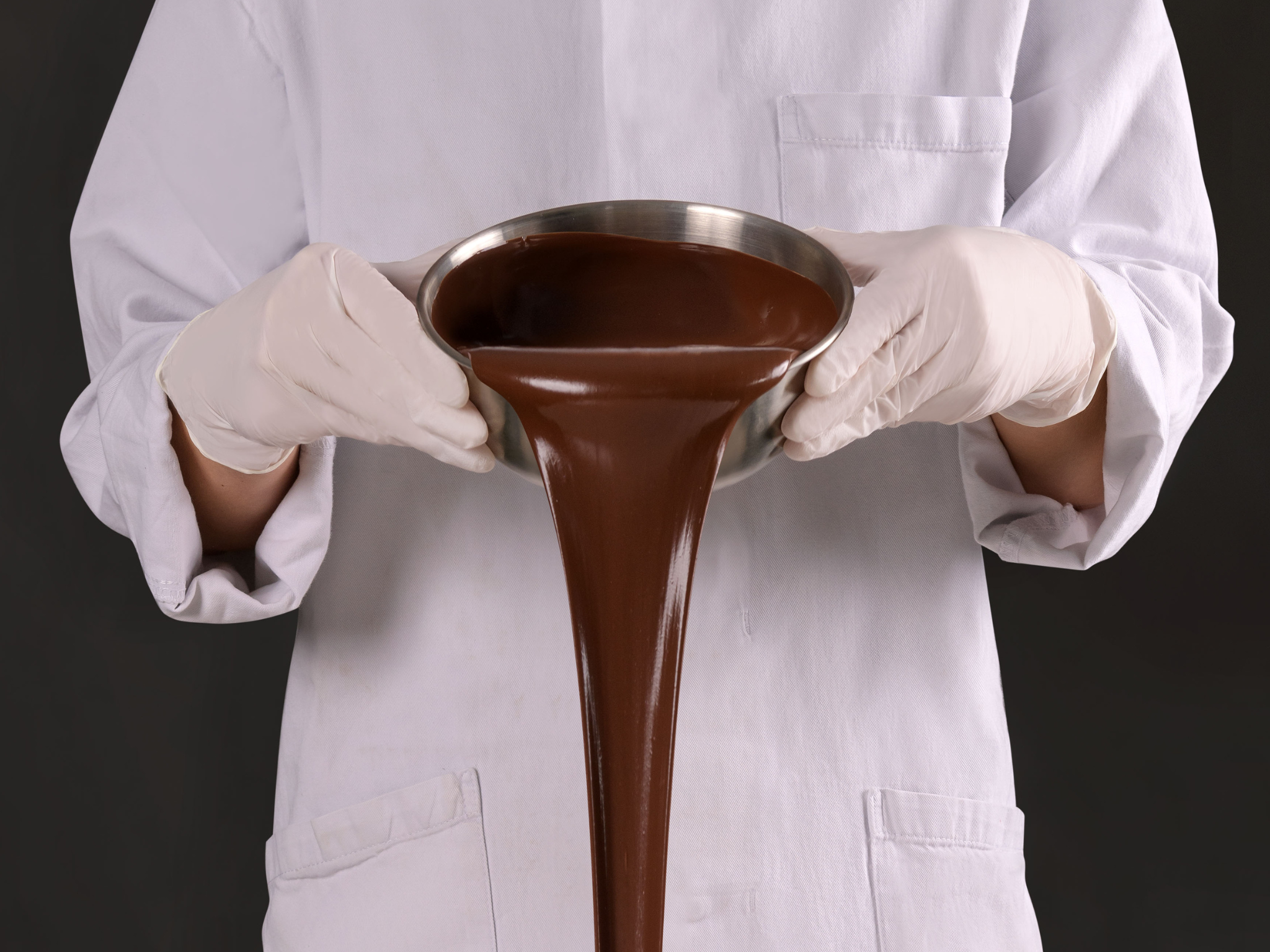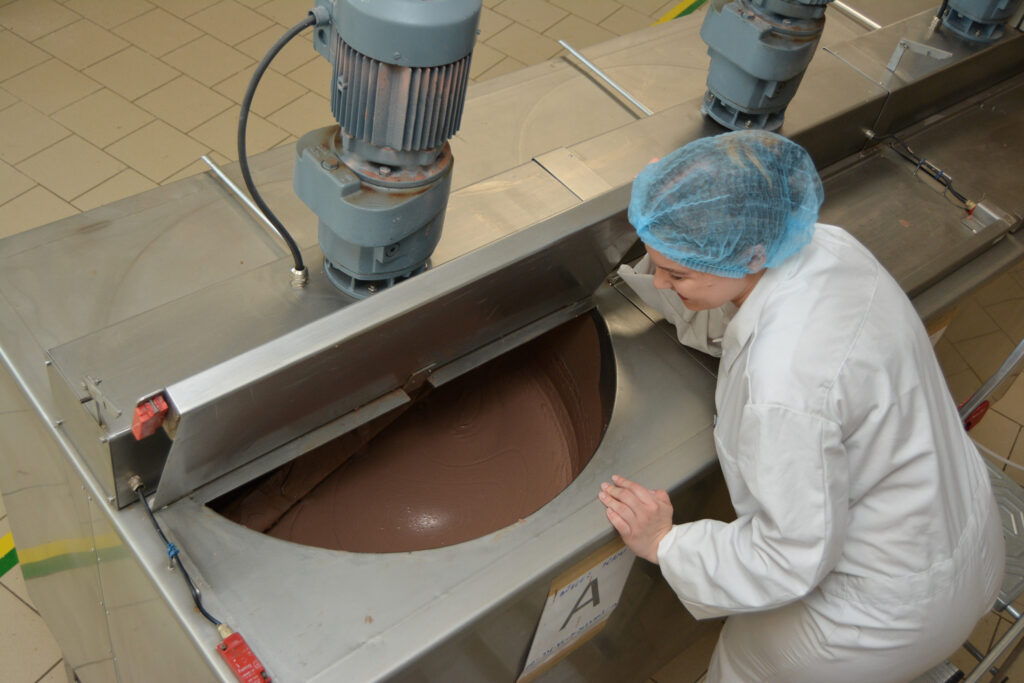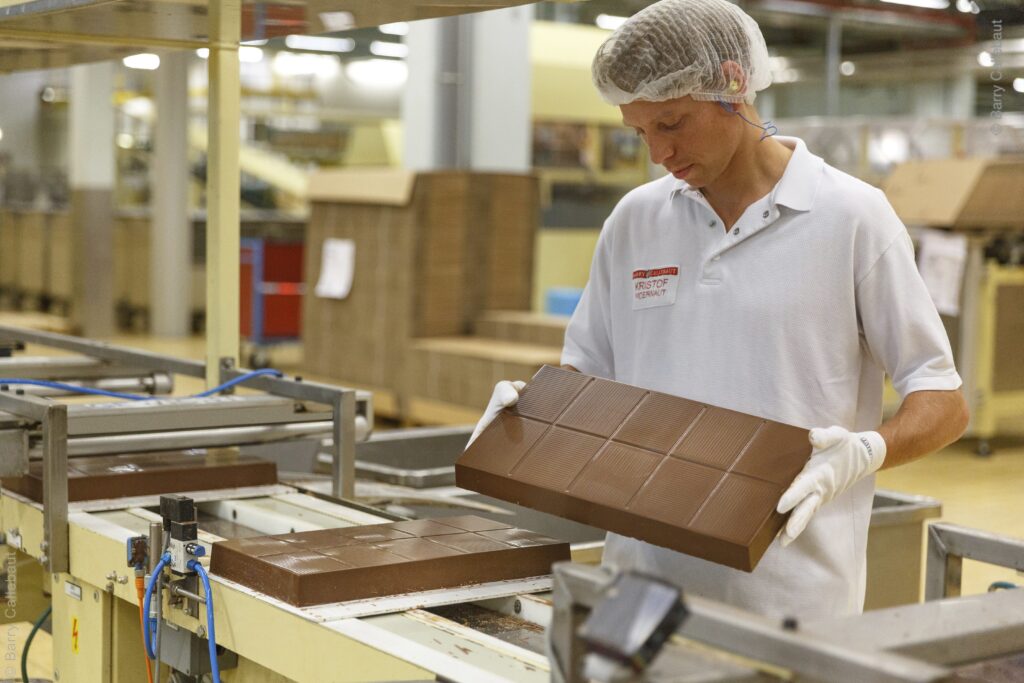
As climate change wrecks the cocoa industry, Barry Callebaut has teamed up with Germany’s Planet A Foods to produce alternatives with its cocoa-free chocolate, ChoViva.
What if your KitKat bar were made without chocolate?
As extreme weather scorches cocoa crops, causing shortages and never-before-seen prices, Swiss chocolate manufacturer Barry Callebaut is feeling the heat.
The company is the world’s largest supplier of chocolate, with clients including Nestlé (including the KitKat brand), Unilever, Mondelēz International, Hershey’s, and Mars, to name a select few.
Its sales volume fell by nearly 8% in the financial year ending in August, despite a 49% hike in revenue, indicative of the larger chocolate picture: global cocoa stocks have slumped to their lowest levels in a decade, and prices have reached all-time highs.
To combat the headwinds, Barry Callebaut has been exploring alternative options to conventional chocolate-making, whether it’s through precision fermentation or cell-based cocoa. Now, it is extending this effort with a long-term commercial partnership with Planet A Foods.

The German startup is one of the leading players in the cocoa-free chocolate space, with its sunflower-seed-based ChoViva ingredient now used in over 70 products found in over 80,000 stores globally.
“Through this partnership with Planet A Foods, Barry Callebaut is embracing technology to open further avenues for growth while enhancing our resiliency to today’s cocoa-market volatility,” said Christian Hansen, head of global strategy at Barry Callebaut.
How (and why) Planet A Foods makes its cocoa-free chocolate
To make its beanless chocolate, Planet A Foods puts a base of sunflower seeds through a proprietary fermentation process. This is then roasted to bring out a similar aroma, flavour and texture to cocoa, and mixed with sugar and plant-based fats to create a mass comparable to cocoa.
ChoViva can be used as a 1:1 replacement for conventional chocolate or in hybrid formulations. Since entering the market in 2024, it has featured in products by the likes of Lindt, Piasten, Aeon, Peter Kölln, Lufthansa, Deutsche Bahn, Kaufland, Rewe, Aldi, and Lidl, among many others.
Planet A Foods operates a production facility in Pilsen, Czech Republic, and is working to expand its annual capacity from 2,000 tonnes to over 15,000 tonnes, an effort supported by a $30M Series B round it closed in December 2024.

But why is it making a chocolate alternative? Cocoa trees are threatened, and scientists have warned that a third of them could die out by 2050. The two biggest producers of the crop, the Ivory Coast and Ghana, have already lost over 85% of their forest cover since 1960.
And human-caused climate change is making things worse. It added six weeks of days above 32°C in over 70% of cacao-producing areas across several African countries, with extreme weather and crop diseases hitting plantations hardest in the Ivory Coast and Ghana.
While the chocolate industry is a victim of the climate crisis, it’s also a major driver of the phenomenon. Producing chocolate emits more greenhouse gases than any other food except beef, and making a single bar requires 1,700 litres of water on average. The industry is also the source of widespread deforestation and food waste.
But with ChoViva, Planet A provides manufacturers a chance to lower emissions by up to 91%. “ChoViva delivers a genuine chocolate-like experience, crafted from 100% natural ingredients and entirely without cocoa,” said Planet A Foods co-founder and CTO Sara Marquart. “This innovative alternative offers consumers the indulgence they love while supporting more mindful and sustainable choices.”
Cocoa-free innovations will complement – not replace – chocolate
Planet A Foods said the partnership will propel the company’s growth and help establish it as a future ingredient leader. “Our goal has always been to scale ChoViva into a global ingredient platform – and this equal partnership helps us do just that”, said co-founder and CEO Maximilian Marquart.
“By combining Barry Callebaut’s global footprint and capabilities with our innovation, we can scale responsibly and bring more products to markets worldwide, faster than ever,” he added.
Barry Callebaut, whose revenues hit $18.2B in the 2024-25 financial year, insisted that cocoa remains at the heart of its business and “will continue to play a central role in its future”. The embrace of cocoa-free chocolate complements its sustainability goals by shortening supply chains and lowering emissions.

“These non-cocoa innovations are not meant to replace traditional chocolate but to complement it, expanding our portfolio to meet growing customer and consumer demand,” said Dries Roekaerts, president of customer experience at Barry Callebaut.
The chocolate giant stated it was aiming to navigate the volatility of today’s cocoa market with a proactive and diversified approach, fuelled partly by its innovation strategy, which is powered by industry-leading R&D capabilities.
“This partnership marks a key milestone in diversifying our portfolio and capturing the exciting opportunities in chocolate alternatives without cocoa,” said Roekaerts. “Together with Planet A Foods, we can scale the production of irresistible chocolate-like creations that broaden choice without compromising on taste, quality and our commitment to the planet.”
The development comes months after Barry Callebaut teamed up with the Zurich University of Applied Sciences to explore the potential of cell-based chocolate, and began using precision-fermented sunflower seeds in some of its offerings in Europe.
The post The World’s Largest Chocolate Supplier is Going Beyond the Cocoa Bean appeared first on Green Queen.
This post was originally published on Green Queen.